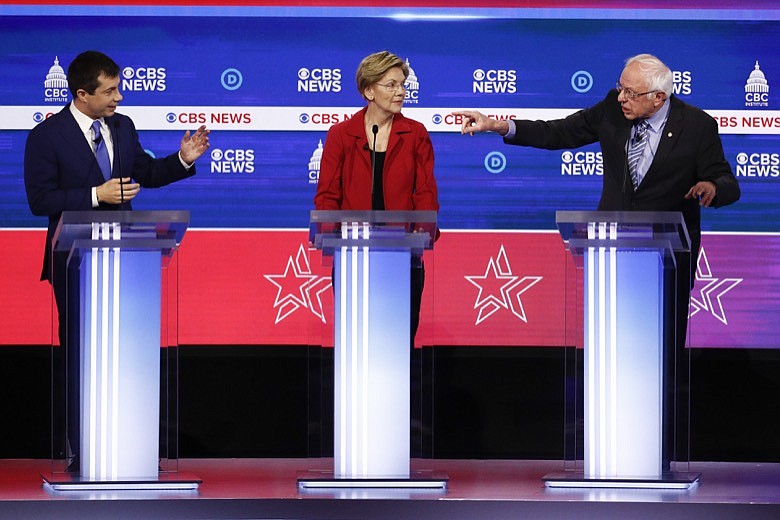Most Americans do not think the current Democratic candidates for president are very religious, which could damage progressive hopes for wins in southern states where faith remains an important voting issue.
The study, released Thursday by the Pew Research Center, asked Americans whether they believe four candidates - Joe Biden, Pete Buttigieg, Bernie Sanders and Elizabeth Warren - are religious.
Biden was the only candidate in the group with more than half of voters, 55%, believing he is religious. The other candidates fared worse - 36% of Americans think Warren is religious, 34% believe Sanders is and 32% believe Buttigieg is. Respondents were not surveyed about Michael Bloomberg or Amy Klobuchar because they were not leading in the polls when the survey was conducted.
Sanders, who is Jewish, emerged as the front-runner in the Democratic field after a strong showing in the Iowa Caucus and wins in the New Hampshire and Nevada primaries. Three in five Americans think Sanders is "not too" or "not at all" religious, according to Pew.
READ MORE: Bloomberg rallies Chattanooga: 'Trump is afraid of me.'
Spencer Hall, a doctoral candidate at Vanderbilt University researching religion and politics, cautioned reading into the study too much for guessing who will win the Democratic nomination. Religion is more closely associated with conservative politics, so it is unlikely to be a deciding factor for progressives, he said.
"More and more, Democratic voters are not affiliated [with religion], so them saying someone is not religious is not necessarily saying they're not going to vote for them," Hall said.
In the 1970s and 80s, the GOP began aligning itself with religiously conservative views on social issues, such as feminism, prayer in schools, gay rights and abortion. For example, the evangelist Jerry Falwell organized the Moral Majority in 1976, overriding the Baptist church's previous stance on separating religion and politics.
A separate Pew survey found that 73 percent of Republican voters or people leaning Republican believe in God with absolute certainty, compared to 55 percent of people who are Democrats or lean Democratic.
READ MORE: How did the GOP get the God vote?
In the Pew survey released Thursday, Republicans were more likely to see the Democratic candidates as less religious than Democrats. Hall said this aligns with people's tendency to assign their own traits onto a candidate. If someone is religious, they are more likely to believe their preferred candidate is religious.
Whoever the Democratic nominee is will struggle to carry Tennessee, a state where religion plays a large role in politics and one that voted overwhelmingly for President Donald Trump in 2016.
On Saturday, voters in South Carolina will go to the polls for the state's Democratic primary, a contest often decided by black Protestant voters.
